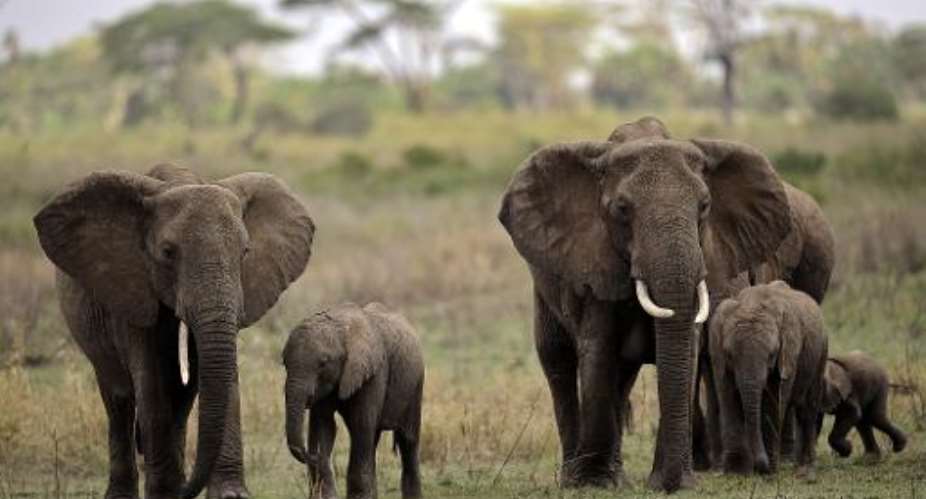Dar es Salaam (AFP) - Tanzania has suspended a controversial anti-poaching operation following reports of rampant human rights abuses including the seizure of property, torture and killing of suspects, the speaker of parliament said Saturday.
Police and wildlife officers have cracked down on suspected poachers amid a surge of killings of elephant and rhino in the east African nation, operating under what was reported to be a shoot-to-kill policy and making sweeping arrests.
The campaign, launched two months ago, was dubbed "Operation Tokomeza", or "Operation Terminate".
"It is has been necessary for government to suspend the operation indefinitely," Speaker of Parliament Anne Makinda told AFP Saturday, adding that a probe into the conduct of the campaign would be launched next week.
Natural Resources and Tourism Minister Khamis Kagasheki told parliament Friday the operation would be called off, adding that any member of the security forces found to be involved in acts of torture, theft of property would be punished.
Shortly after the campaign's launch Kagasheki was widely quoted in Tanzanian media as saying that "rangers are allowed to shoot to kill poachers."
On Friday, MP John Shibuda said while poachers have badly hit Tanzania's elephant population, killing the hunters was unacceptable.
"Human life is more valuable than jumbos," he told parliament.
Other lawmakers listed alleged abuses including killings during the campaign.
Poaching has risen sharply in Africa in recent years. Besides targeting rhinos, whole herds of elephants have been massacred for their ivory.
Tourism is a key foreign currency earner for Tanzania, especially wildlife safaris to its world famous parks that include the Serengeti and Ngorongoro carter.
The lucrative Asian black market for rhino horn has driven a boom in poaching across Africa.
Asian consumers falsely believe the horns, which have the same composition as fingernails, have powerful healing properties.





 There’s nothing you can do for us; just give us electricity to save our collapsi...
There’s nothing you can do for us; just give us electricity to save our collapsi...
 Ghanaian media failing in watchdog duties — Sulemana Braimah
Ghanaian media failing in watchdog duties — Sulemana Braimah
 On any scale, Mahama can't match Bawumia — NPP Youth Organiser
On any scale, Mahama can't match Bawumia — NPP Youth Organiser
 Never tag me as an NPP pastor; I'm 'pained' the 'Akyem Mafia' are still in charg...
Never tag me as an NPP pastor; I'm 'pained' the 'Akyem Mafia' are still in charg...
 Your refusal to dedicate a project to Atta Mills means you never loved him — Kok...
Your refusal to dedicate a project to Atta Mills means you never loved him — Kok...
 2024 elections: I'm competent, not just a dreamer; vote for me — Alan
2024 elections: I'm competent, not just a dreamer; vote for me — Alan
 2024 elections: Forget NPP, NDC; I've the Holy Spirit backing me and nothing wil...
2024 elections: Forget NPP, NDC; I've the Holy Spirit backing me and nothing wil...
 2024 elections: We've no trust in judiciary; we'll ensure ballots are well secur...
2024 elections: We've no trust in judiciary; we'll ensure ballots are well secur...
 Performance tracker: Fire MCEs, DCEs who document Mahama's projects; they're not...
Performance tracker: Fire MCEs, DCEs who document Mahama's projects; they're not...
 Train crash: Railway ministry shares footage of incident
Train crash: Railway ministry shares footage of incident
